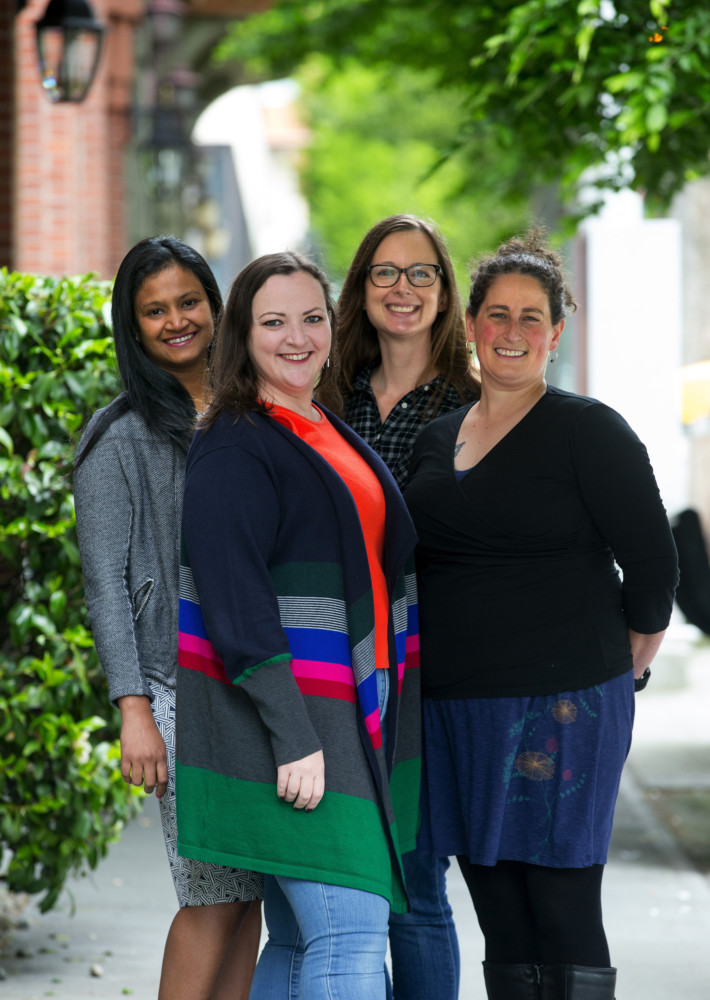By Rachel Lerman
The Seattle Times
WWR Article Summary (tl;dr) The “Seattle Female Founders Alliance,” provides a safe space for female founders of venture–scale startups to share thoughts and ideas. It started out with one woman looking to connect online and has grown into so much more.
SEATTLE
Leslie Feinzaig had been searching for months for a business partner to join her startup, toy company Venture Kits, and was starting to feel the press of loneliness that often goes along with being a company founder.
Acting on instinct, the Seattle entrepreneur sat down at her computer that day in January and somewhat hastily created a Facebook group, adding all her local female friends who were startup founders.
After a year working as a vice president at Seattle-based makeup company Julep, and several turns volunteering with startup accelerator Techstars, Feinzaig knew quite a few people in the community.
But the rapid spread and popularity of the group still surprised her. Women she had added started inviting their friends, who in turn invited their contacts, and before she knew it, Feinzaig’s attempt to create a small community had more than 75 members.
Now known as the Seattle Female Founders Alliance, it has become an online and in-person forum for women who have founded startups, a group that can share advice on fundraising, ask each other business questions and discuss how to elevate companies run by women, a severely underrepresented group in the tech sector.
Feinzaig calls the alliance the “2.19 percent,” a reference to the amount of venture-capital dollars that flowed to female founders in 2016.
According to U.S. data from Pitchbook Data, companies led by women received $1.46 billion in venture-capital funding in 2016, compared with $58.19 billion pulled in by companies founded by men.
“I do think we have a particular set of challenges we need to actively support each other to overcome,” Feinzaig said. “We’re getting far less than we are capable of.”
The core group is exclusively for female founders of venture-scale startups, no small-shop owners, investors or lawyers. It is important, Feinzaig said, for startup entrepreneurs to have a safe place to share thoughts and ideas.
“We’re able to talk to each other more freely and share advice and promote each other,” she said.
The alliance isn’t cutting out the rest of the world, however. The group held its first event this month at The Riveter, a Capitol Hill female-focused co-working space.
Eight startup founders pitched their companies to an audience of investors, media and fellow entrepreneurs.
Katharine Geramita, co-founder of STEM education startup CreositySpace and a member of the alliance, was floored by the support she got in the weeks leading up to the pitch event. She got more than 20 hours of volunteer coaching and advice from Seattle tech-industry mentors who are Alliance members.
“You can’t put into words how much that impacts your confidence,” she said.
The Alliance includes first-time founders, serial entrepreneurs and several women with extensive experience and success leading companies.
One of them, Liz Pearce, the CEO of Seattle startup LiquidPlanner, coached two teams for the pitch event.
She was immediately attracted to the idea of a group for female entrepreneurs. Pearce, who also serves on the advisory board of Ada Developers Academy, a coding school for women, and volunteers with many women-in-tech initiatives, said the fast growth of the Alliance likely shows that the peppering of programs and services around town aimed at women in technology are really starting to take hold.
Feinzaig relied on an organizing committee of six Alliance members to put together the first event, including Geramita, Mitika Gupta, co-founder of health-care startup Lyfboat, and Laura Malcolm, founder of giving website Give InKind.
The Alliance plans to hold similar events in the future. Feinzaig also hopes the group will continue to expand and eventually have sister organizations across the country.
Feinzaig is currently sifting through more than 50 requests from applicants who want to join the group. Some she has had to turn down, either because they are not founders or they live in other parts of the country. But she intends to find ways to involve those people somehow.
“We want to collaborate with everyone in the industry,” Feinzaig said. “Our companies will not succeed if we close ourselves off from the rest of the world.”














































































































































































































































































































































































